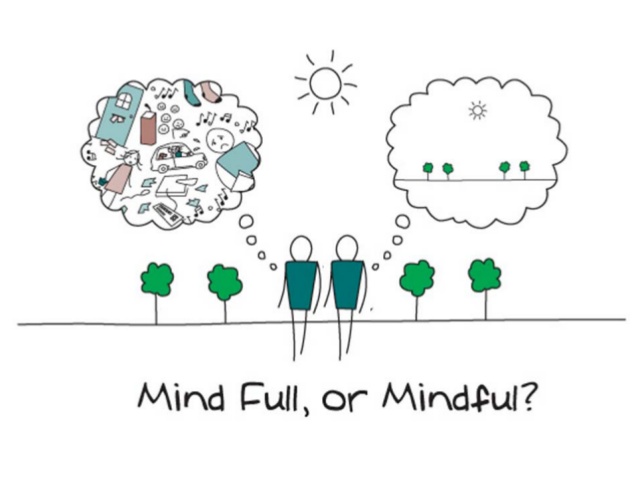I’m breaking from the interiors theme tonight to talk about something that is getting on my wick. You’re going to think I’m mad, but it’s mindfulness.
The basic definition of mindfulness, courtesy of the Oxford English Dictionary, is: “The quality or state of being conscious or aware of something”.
But anyone who reads the papers or spends time online these days will know that it has morphed into something far bigger. It’s the idea that being more aware of what is happening in your mind, body and surroundings can boost career progression, beat stress and even help you lose weight. Right now, there are 22,855 books relating to mindfulness on Amazon, and the NHS has an advice page on it. Take a look at these news headlines:
‘Overcoming fear of public speaking through mindfulness’
‘Why mindfulness helps you sleep and sleep makes you mindful’
‘How a raisin can help you with mindfulness’
While there are some big potential benefits of thinking about thinking, it’s also spawned some bold claims and a whole world of mindfulness allies. It seems to come as a package along with the avocado, sugar-free diets, adult colouring books, proud sweating at the gym and, most recently, the quest for cosy living like the Danes – ‘hyyge’.
And many people, including me, have bought into it. I’ve done the diet diary on MyFitnessPal and have dabbled in colouring books – along with 12 million other people in 2015. ‘Hyyge’ has inspired ‘9 ways to be more Danish’ guides in women’s magazines and the BBC calls it “a heart-warming lesson”. Mindfulness app The Headspace has over three million users and is worth £25m.
But recently, the very movement that is supposed to make us calm, floaty, successful people has started to feel like a bit too much. Off the top of my head, we are now deemed to be killing it if we can fit yoga, juicing, meditation, #squadgoals, glowing skin, charity work, some sort of extra curricular learning, mind blowing sex and (oh yeah) WORK into one day. With the end goal of what? Running ourselves into the ground?
What was once a well-meaning trend that you could take or leave is now difficult to avoid. I can’t eat a bar of chocolate without worrying about the impact on my blood sugar and life expectancy. I can’t watch GBBO without feeling I should make a showstopper, too.
I know I’ll lack ‘that glow’ if I don’t run for a week, or eat avocado on bread instead of a Ryvita. I can’t remember the last time I fell asleep thinking about a lovely holiday or plans for the weekend. It’s work, or self-improvement, or what I should do tomorrow to be fulfilled, and interesting, and good to talk to at dinner parties.
And ‘hyyge’? How much do we need to make of a dressed-up word for cosy. Yes, we’d all quite like a cosy home and live like the Danish. Get a throw.
As Michael Booth points out beautifully in The Guardian: “I suspect happiness is a little more complicated. Here’s my stab at why the Danes are such a satisfied bunch: They are rich, sexy and don’t work very much; they also take more antidepressants than virtually anyone else in the world, and, yes, they like a drink and eat more confectionery and bacon per capita than most.”
So they just give less of a shit, then? Good job we have all that mindfulness and over-thinking to get us there, too…
I’d happily forgive a few more selfish, unthoughtful people in the world if it meant we could make a few more allowances for ourselves, too. We can’t all be kind, or perfect, or not tell other people the cold, hard truth, all the time. If it gets me an afternoon on the sofa, watching uncool films and pigging out on non-organic carbs, without automatically shaming myself on social media and punishing myself the next day, I’m in.
Are you mindfulness nay, or mindfulness yay? Let me know in the comments below.
Stats taken from The Independent, The Guardian and the BBC.
